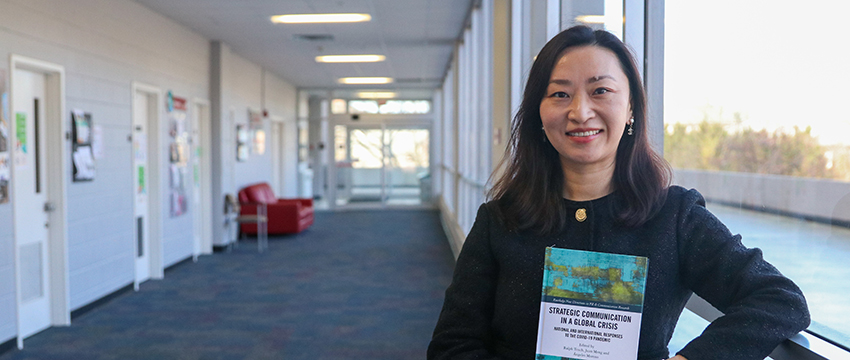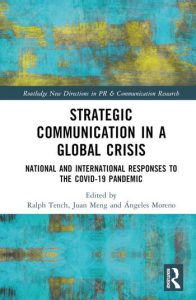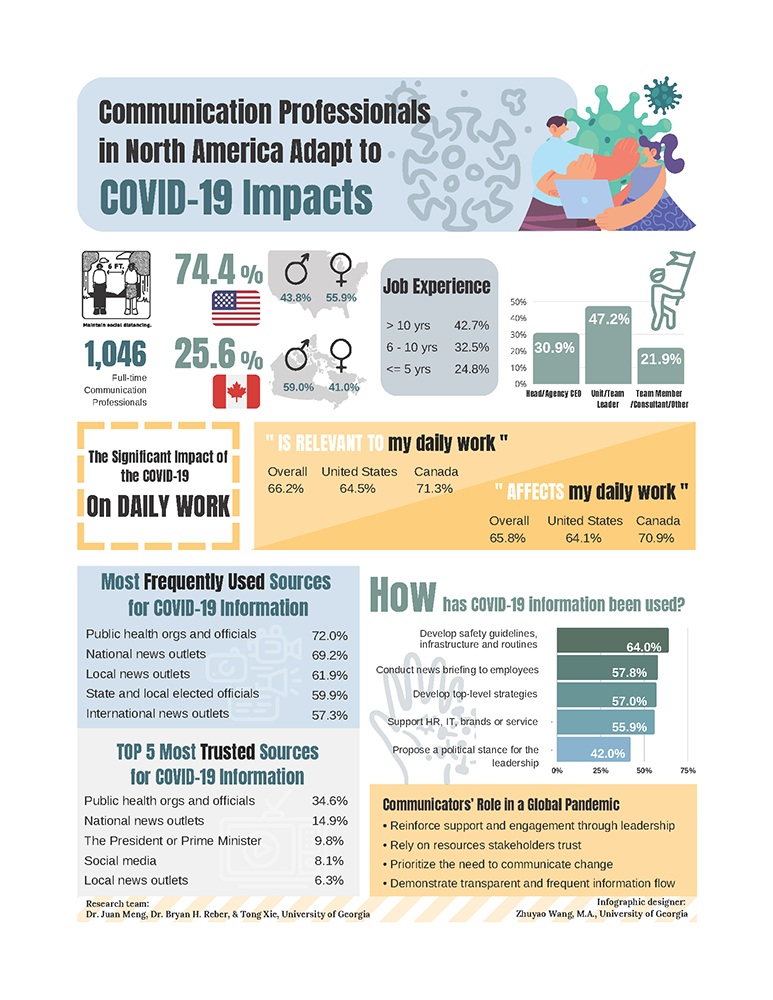Juan Meng co-edits book exploring strategic communication during COVID

Juan Meng co-edits book exploring strategic communication during COVID

While 2020 was a period of time many want to leave in the rearview mirror because of the global pandemic, the public relations lessons from COVID-19 deserve to be documented for current and future study. Three scholars have done that with their new book, “Strategic Communication in a Global Crisis: National and International Responses to the COVID-19 Pandemic.”
The book is co-edited by Juan Meng, professor of public relations and head of the Department of Advertising and Public Relations at the University of Georgia Grady College of Journalism and Mass Communication, along with Ralph Tench, professor of communication, Leeds Beckett University in the UK and Ángeles Moreno, professor at the University of Rey Juan Carlos in Spain.
“Our goal was to design a global collaboration research project that focuses on the strategic communication and the COVID-19 pandemic that we hope to make a unique and timely contribution,” Meng said.
The book captures valuable insight from nearly 40 scholars and communication professionals representing 16 countries from five continents, including Africa, Asia, Europe, North America and South America. Such a scope has marked this book as a first global and international investigation of the COVID-19 pandemic and strategic communication. Subjects covered in the book include, but are not limited to:
- public health messaging and the effectiveness of health communication campaigns;
- the successes and failures of the communication strategies used during the pandemic;
- the trust of information sources and source credibility in the context of a global pandemic;
- the impact of the COVID-19 pandemic on the public perception of research, science and scientists;
- trust building and communication strategies in public health emergencies; and
- national and regional experiences and discrepancies on pubic health responses and global communication.
Meng said the goal in writing the book was to share the benefits of strategic communication in a time of enforced social, political and economic transformation.
“As a global research project, it is challenging but important to accomplish the goal of managing it from a variety of different perspectives: from scholars who are interested in doing global research and students who want to learn global communications; to public health and governmental institutions and entities to aid in developing effective strategic communication amid uncertainty in any public health and safety crises.”
Meng said the book also explored the impact of misinformation and disinformation on public’s likelihood to follow public health guidelines during the pandemic. National responses addressed in the contributing chapters are tailored to reflect the uniqueness in the coping strategies in each specific country and culture.
“It’s full of multi-levels of insights and perspective from different groups of responses,” Meng said.

Many of the chapter authors from different countries were invited to participate through their membership in the European Public Relations Education and Research Association, or through Meng’s research network as the lead researcher for the North American Communication Monitor, sponsored and organized through The Plank Center for Leadership in Public Relations
The book is divided into four sections: An introduction; a section written by communication professionals about how they managed the influx of information during COVID; a section examining the response of 16 countries including the trust level of citizens and how each government communicated information; and a conclusion. Each chapter incorporates a visually engaging infographic summarizing key findings and practical implications.
“As editors, we believe it is necessary to provide engaging visual communication information in today’s digital communication environment to advance the meaning of strategic communication and bridge the knowledge gap between social science research and practical implications,” Meng said.
In addition to Meng, several other Grady College faculty, doctoral students and alumni contributed chapters to the book including Yan Jin, the C. Richard Yarbrough Professor of Crisis Communication Leadership; Ruoyu Sun (MA ’17), assistant professor of public relations; Bryan Reber, professor emeritus; Ton Xie (PhD ‘22); and Sung In Choi, a current doctoral student.
The book is part of the Routledge New Directions in PR & Communication Research series.